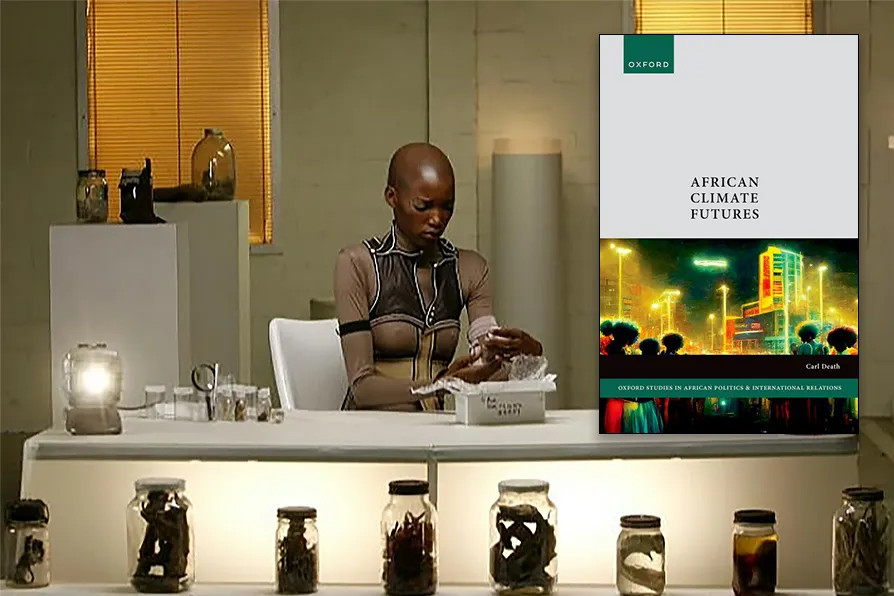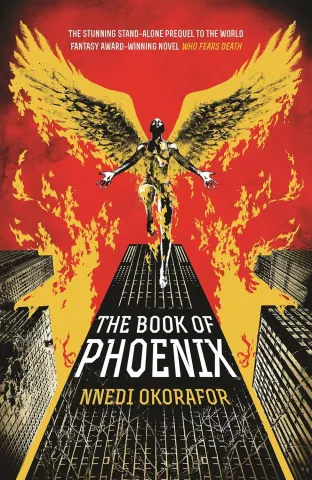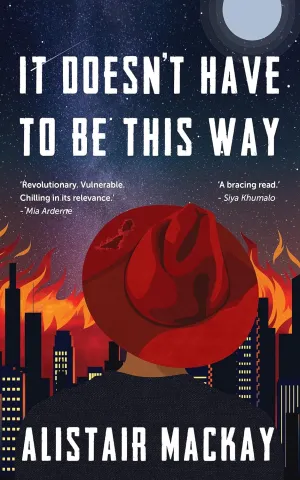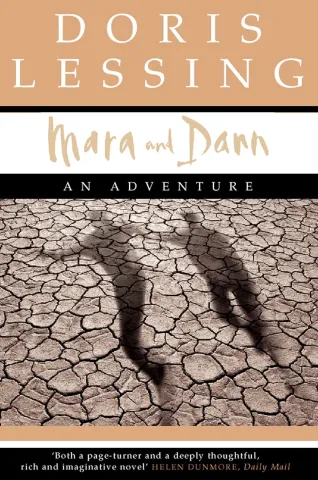JOHN GREEN, MARIA DUARTE and ANGUS REID review Fukushima: A Nuclear Nightmare, Man on the Run, If I Had Legs I’d Kick You, and Cold Storage
CARL DEATH introduces a new book which explores how African science fiction is addressing climate change

 Kudzani Moswela in Wanuri Kahiu’s Pumzi (2009) [Pic: IMDb]
Kudzani Moswela in Wanuri Kahiu’s Pumzi (2009) [Pic: IMDb]
African Climate Futures
Carl Death, OUP, £99
Why read African climate fiction?
I was drawn into African climate fiction through wonderful stories, such as Nigerian-American writer Nnedi Okorafor. But I soon became interested in how these tales challenge a lot of what we think about global climate change politics. I’ve approached them from the perspective of a researcher on environmental politics rather than as a scholar of African literature.

In the book I’ve tried to use them as a way to evaluate existing climate strategies and to imagine new ways of living in better, climate-changed worlds.
Some scientists and environmental activists have urged novelists and other artists to help them communicate climate science more effectively and persuade people to change their attitudes and behaviours.
There is a case for this, especially given the urgency of the climate crisis. But I’m more interested in the broader and deeper role of stories. Helping us understand who we are and how we get here. Seeing the world from other perspectives, even potentially from non-human perspectives. Holding up a mirror to the world we live in and showing us that it is possible to imagine other worlds.
Stories have power. As Nigerian writer Ben Okri warns us: “Beware the stories you read and tell: subtly, at night, beneath the waters of consciousness, they are altering your world.”
This book also emerged from a frustration that most discussions of climate fiction focus on European and North American authors and settings. African climate fiction is fantastic – and yet it is too often ignored or marginalised.
This is worrying, not just in terms of the diversity of perspectives, but because African climate fiction is especially good at showing how past, present and future overlap. And how humanity relates to non-human and more-than-human ways of being. It is also very strong in interrogating racism, sexism and other forms of injustice.
What settings do the stories use and when do they play out?
I focus on novels by Lauren Beukes (South Africa), Doris Lessing (Rhodesia/UK), Alistair Mackay (South Africa), Nnedi Okorafor (Nigeria/US), and Tochi Onyebuchi (US).
I examine short stories by Terh Agbedeh (Nigeria), Mame Bougouma Diene (Senegal/France/US), Osahon Ize-Iyamu (Nigeria), Vuyokazi Ngemntu (South Africa), Nnedi Okorafor, Suyi Davies Okungbowa (Nigeria), Chinelo Onwualu (Nigeria), Tlotlo Tsamaase (Botswana) and Jessica Wilson (South Africa).
And I discuss the films Black Panther (US) and Pumzi (Kenya). So there’s a wide range of settings and timeframes. But all of them are set wholly or largely somewhere in Africa, in an altered present or future, near or far.
The stories take us from Johannesburg’s sewers to skyscrapers in utopian Lagos, high-speed railways, flooded slums, and solar-powered barges on the Congo. From futuristic east African compounds to homely eco-villages in the Niger Delta, and deserts from the Sahara to the Kalahari.

Some stories narrate the collapse of carbon-fuelled capitalism, like Okorafor’s The Book of Phoenix or Mackay’s It Doesn’t Have to Be This Way. Others take place hundreds or thousands of years into the future after environmental shifts have changed the face of the planet, like Onwualu’s Letters to My Mother or Lessing’s Mara and Dann.
What political issues do they raise?
I want to show how these stories have implications for how we think about places, time, ecology and politics.
To take just one example: many of these stories – as in science fiction more generally – feature domed cities, enclaves protected from dangerous environments. A striking example is Tsamaase’s digital dystopia in Virtual Snapshots.
Such stories ask us to consider: who is “in” and who is “out”? Are cities and homesteads places of safety or danger? How are the cultures of past societies in these places – the ancestors – reinvented or memorialised? How are these cities shared with nonhuman species?
These climate stories – which I describe, following Okorafor, as Africanfuturist – also challenge how we might think about the heroes and villains of climate change.
In stark contrast to official government climate strategies, these tales don’t pull punches when identifying the bad guys: colonial regimes, hypocritical and imperialistic Western governments and corporations, and corrupt “big men” politicians.
Their heroes are diverse, but many are young, black and female. Some are queer, some are disabled or neuro-diverse, many are flawed or outcast. Not all of them are human: there are winged mutants, characters who are more machine than human, and crocodiles, spiders, and an angry swordfish!
These stories can help us think more creatively about forms of political agency for tackling the climate crisis.
What are you hoping readers will take away?

Ultimately, this book hopes to convince readers that stories are political and have power. As Okorafor has said: “Science fiction is one of the greatest and most effective forms of political writing. It is all about the question: what if?”
Writing, reading, and discussing stories is a political intervention. And if we want to survive to tell new stories in liveable futures then we need to urgently and radically transform carboniferous capitalism.
Carl Death is Senior Lecturer in International Political Economy, University of Manchester
This is an abridged version of an article republished from The Conversation under a Creative Commons license

Star cartoonist MALC MCGOOKIN finds lessons for today in the punch, and the economy of line, of an extraordinary generation of illustrators

This weekend's edition and the Country Standard supplement are free to read

MIKE QUILLE applauds an excellent example of cultural democracy: making artworks which are a relevant, integral part of working-class lives

SALEEM BADAT and VASU REDDY introduce a new book about an outstanding interpreter of the world, and an activist scholar committed to changing society









